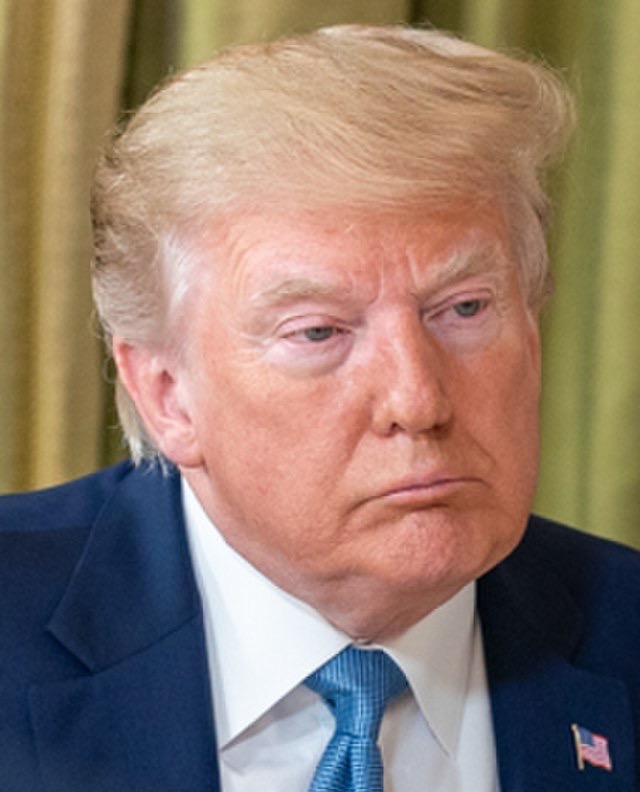A New Chapter in Global Trade Tensions
In a move that has sent shockwaves through global financial markets, President Donald Trump announced sweeping new tariffs, imposing a 10% baseline tax on all U.S. imports, with significantly higher rates targeting key trading partners. This aggressive policy shift has prompted vows of retaliation from both the European Union and China, raising concerns about an escalating trade war and its potential to derail the global economy.Reuters+5Reuters+5New York Post+5
Details of the Tariff Announcement
On April 2, 2025, President Trump unveiled a comprehensive tariff strategy aimed at promoting U.S. manufacturing and addressing trade imbalances. The key components include:AP News
- 10% Baseline Tariff: A universal tariff applied to all imports into the United States.
- Targeted Tariffs:
- China: A cumulative 54% tariff on Chinese imports.Wikipedia+3Business Insider+3Reuters+3
- European Union: A 20% tariff on EU exports to the U.S.
- Japan and South Korea: Tariffs of up to 32% on imports from these nations.
President Trump justified these measures as necessary to revitalize domestic industries and counteract what he perceives as unfair trade practices by foreign nations.
Immediate Market Reactions
The announcement had an immediate and profound impact on global financial markets:
- U.S. Markets: Stock futures plummeted, with the Dow Jones Industrial Average dropping over 1,000 points and the Nasdaq declining by more than 3%. Business Insider
- European Markets: Major indices in Germany, the UK, and France fell by up to 2.4%, reflecting investor anxiety over the potential economic fallout. Business Insider
- Asian Markets: Japan’s Nikkei index declined by 2.8%, with significant losses in the banking and automotive sectors. South Korea’s Kospi and Hong Kong’s Hang Seng also experienced notable drops. AP News
Investors flocked to safe-haven assets, causing gold prices to surge to record highs, while riskier assets like oil and cryptocurrencies saw declines. Business Insider
Global Responses and Retaliation Threats
The European Union and China have strongly condemned the U.S. tariffs and signaled intentions to retaliate:
- European Union: European Commission President Ursula von der Leyen described the tariffs as a “major blow” to the world economy and indicated that the EU is prepared to implement countermeasures if diplomatic efforts fail. The Guardian
- China: Beijing denounced the tariffs as “bullying” and vowed to take necessary actions to protect its interests, urging the U.S. to immediately withdraw the measures to prevent further escalation. Yahoo News
Economic Implications and Expert Analyses
Economists and financial analysts have expressed deep concerns about the potential repercussions of the tariff escalation:
- Inflationary Pressures: The increased cost of imports is likely to lead to higher prices for consumers, contributing to inflation.
- Risk of Recession: The tariffs could dampen economic growth both domestically and internationally, heightening the risk of a global recession. Reuters
- Disruption of Global Supply Chains: Industries reliant on international supply chains may face significant challenges, potentially leading to production delays and increased costs. Business Insider
Critics argue that these tariffs may undermine the very industries they aim to protect by increasing input costs and inviting retaliatory measures that limit market access.
Conclusion: Navigating Uncertain Waters
The implementation of these extensive tariffs marks a significant escalation in global trade tensions, with far-reaching implications for the world economy. As the European Union and China prepare to respond, the potential for a full-scale trade war looms large. Businesses, investors, and policymakers must brace for increased volatility and uncertainty in the economic landscape. The coming weeks will be critical in determining whether diplomatic solutions can be found or if the world is headed toward deeper economic conflict.
FAQs
1. What are the new tariffs imposed by the U.S.?
The U.S. has introduced a 10% baseline tariff on all imports, with higher rates for specific countries: 54% on Chinese imports, 20% on European Union exports, and up to 32% on imports from Japan and South Korea.New York Post+3Reuters+3AP News+3
2. How have global markets reacted to these tariffs?
Global markets have experienced significant declines, with major indices in the U.S., Europe, and Asia all dropping in response to the announcement.Reuters+2Business Insider+2AP News+2
3. What retaliatory actions are the EU and China considering?
Both the EU and China have expressed intentions to implement countermeasures, though specific actions have not yet been detailed.
4. What are the potential economic impacts of these tariffs?
Economists warn of increased inflation, disrupted supply chains, and a heightened risk of global recession as potential consequences of the tariff escalation.
5. How might these tariffs affect consumers?
Consumers may face higher prices on imported goods and products that rely on imported components, as businesses pass on increased costs resulting from the tariffs.



